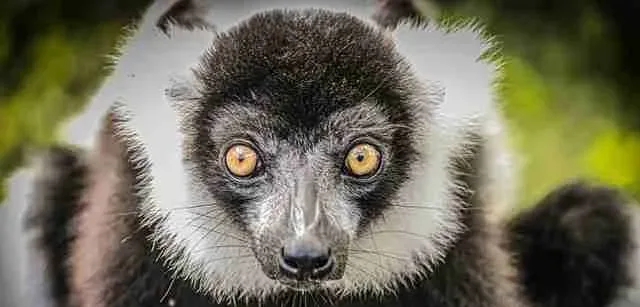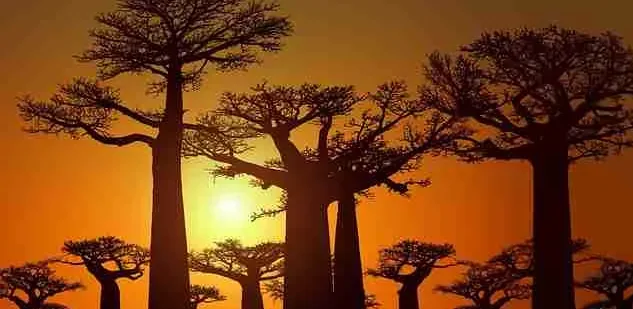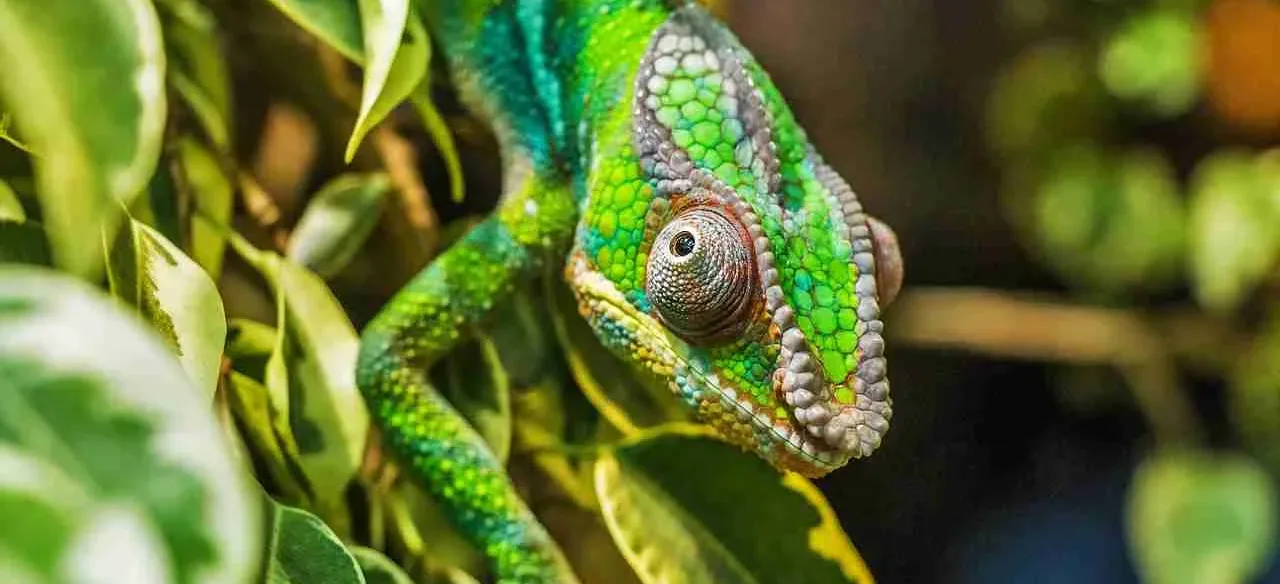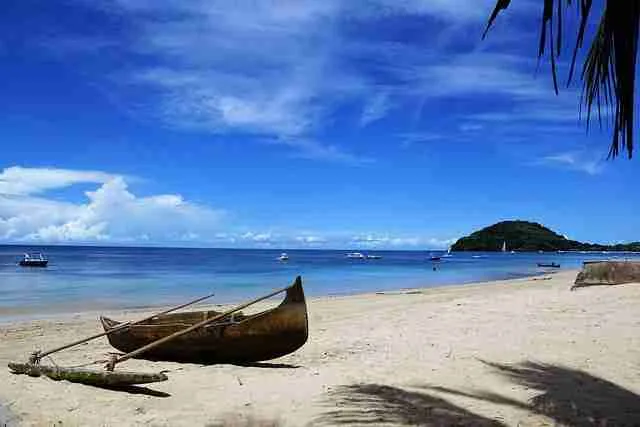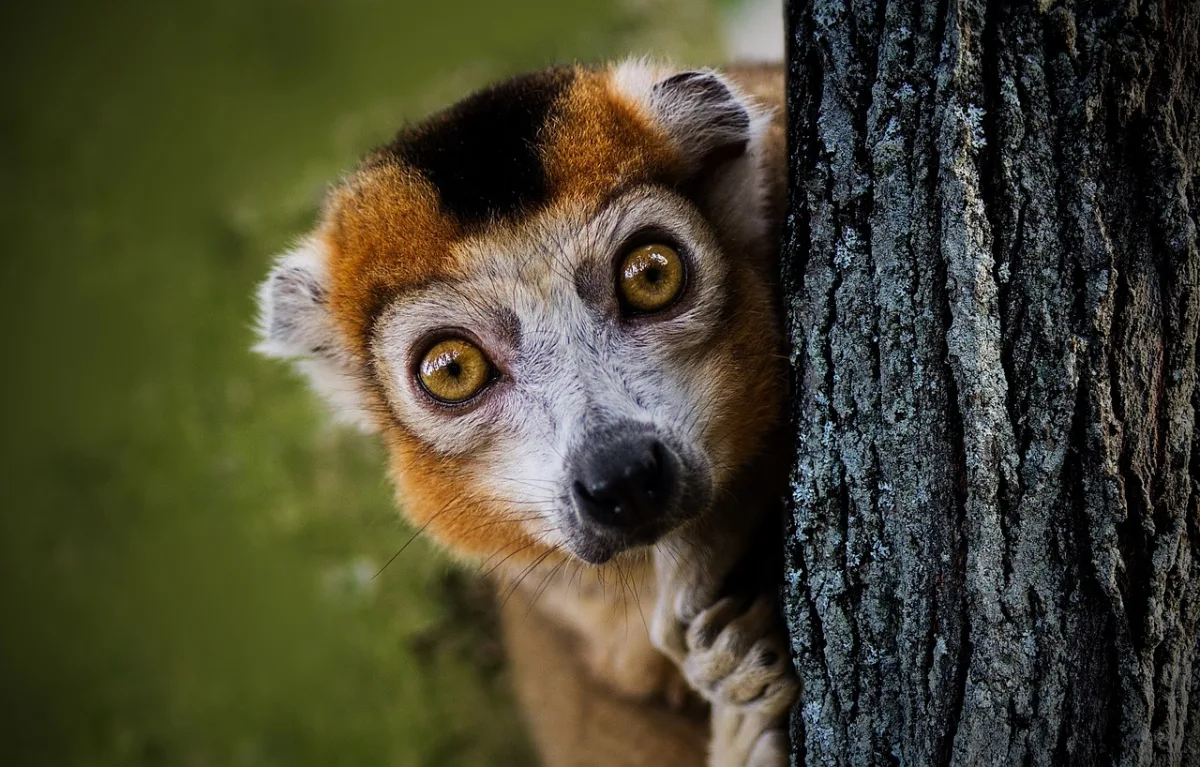
Madagascar Wildlife Experience
The Madagascar Wildlife Experience is a 12 day private tour focussing on the unique wildlife of this island nation.
Discover the Magic of Madagascar
Madagascar offers a journey filled with wonder and discovery. Located off the south-eastern coast of Africa, this island nation is celebrated for its extraordinary biodiversity and rich cultural traditions. From lush rainforests to vibrant coastal waters, Madagascar invites travellers to explore landscapes and experiences found nowhere else.
The island’s forests are home to over 100 species of lemur, ranging from the tiny mouse lemur to the impressive indri. These primates are exclusive to Madagascar and play a vital role in its ecosystems. Alongside them, countless plant species thrive, many of which are endemic and contribute to the island’s unique character.
Madagascar’s coastline is equally captivating. The turquoise waters host a wide variety of marine life. Visitors can swim alongside whale sharks, observe humpback whales during their seasonal migration, or dive into coral reefs teeming with colourful fish and graceful sea turtles. These experiences offer unforgettable moments for nature lovers and adventure seekers alike.
A Culture Rooted in Diversity
Madagascar’s cultural heritage is as vibrant as its natural environment. The Malagasy people are known for their warmth and hospitality. Their culture reflects a blend of African, Asian, and European influences, shaped over centuries of trade and migration.
Travellers can immerse themselves in local traditions by attending community festivals, enjoying live music performances, or exploring historical landmarks. UNESCO World Heritage Sites such as the Royal Hill of Ambohimanga provide insight into Madagascar’s past and its continuing cultural evolution.
Local cuisine also offers a window into Malagasy life. Meals often feature rice, fresh seafood, and locally grown produce, seasoned with aromatic spices. Sharing food is a central part of social gatherings, and visitors are frequently invited to join in.
Wildlife Encounters in Madagascar
Madagascar’s rainforests are home to some of the world’s most fascinating creatures. Among them are chameleons, known for their vivid colours and remarkable ability to blend into their surroundings. These reptiles are a highlight for many visitors and are often spotted with the help of knowledgeable local guides.
In the spiny forests, unusual animals such as spiny-tailed iguanas and leaf-tailed geckos have adapted to thrive in harsh conditions. Their camouflage makes them difficult to spot, adding an element of excitement to wildlife walks. Expert guides play a key role in helping travellers appreciate the complexity of these ecosystems.
The island’s marine environments are equally rich. Snorkelling or diving along Madagascar’s coral reefs reveals a kaleidoscope of life. Sea turtles glide through the water, rays sweep across the ocean floor, and schools of fish shimmer in the sunlight. During the cooler months, humpback whales pass through these waters, offering dramatic displays of breaching and tail-slapping.
Responsible Travel and Conservation
Madagascar’s wildlife faces serious threats from habitat loss and human activity. Many species are endangered, and conservation efforts are essential to protect them. Travelling responsibly helps support these efforts and ensures that future generations can enjoy the island’s natural beauty.
Our Local Tour is committed to making every journey ‘net positive’. This means that your visit contributes more to local communities and the environment than it takes. By choosing ethical travel options, you help preserve Madagascar’s ecosystems and support sustainable development.
Visitors are encouraged to learn about conservation projects and engage with local initiatives. Whether it’s planting trees, supporting community-led tourism, or choosing eco-friendly accommodation, every action makes a difference.
Why Choose Madagascar?
Madagascar offers something for everyone. Nature enthusiasts will find rare wildlife and stunning landscapes. Culture lovers can explore traditions shaped by centuries of history. Adventure seekers can dive into marine life or trek through ancient forests.
The island’s diversity makes it an ideal destination for tailor-made travel experiences. Whether you’re planning a family holiday, a solo adventure, or a group tour, Madagascar provides opportunities to connect with nature and culture in meaningful ways.
With Our Local Tour, your journey is designed to be enriching, respectful, and unforgettable. Let Madagascar surprise you with its beauty, charm, and spirit of welcome.
Tilormade Madagascar Holidays
Our Local Travel Experts in Madagascar
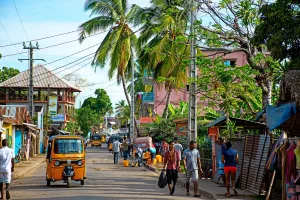
In Madagascar, our trusted partner is dedicated to creating travel experiences that are both authentic and memorable. The guiding team brings deep knowledge of Madagascar’s diverse ecosystems and a genuine passion for sharing them with visitors. Whether your interests lie in spotting lemurs, walking among ancient baobab trees, or watching humpback whales breach offshore, we’ll help design a journey that suits your preferences. A wide selection of itineraries is available, and tours can be customised to match your interests, travel style, and budget. With expert guidance and thoughtful planning, your Madagascar adventure will be as unique as the landscapes you explore.
PLACES TO VISIT IN MADAGASCAR
See Lemur on a Madagascar Safari
Discover Lemurs on our Madagascar Tours
Madagascar offers a truly unique wildlife experience. It’s the only place on Earth where over 100 species of lemurs live freely in their natural habitats. These captivating primates have adapted to a wide range of environments across the island. From the lush rainforests in the east to the dry deciduous forests in the west and the spiny woodlands of the south, lemurs thrive in diverse ecosystems.
Each region of Madagascar presents a different opportunity to observe lemurs in the wild. Their behaviours, appearances, and habitats vary significantly, making every encounter special. Whether you're trekking through dense jungle or exploring open forest trails, the chance to see lemurs up close is a highlight of many Madagascar tours.
Where to See Lemurs in the Wild
To experience lemurs in their natural surroundings, visit one of Madagascar’s many national parks and reserves. These protected areas offer safe havens for wildlife and provide excellent opportunities for responsible tourism.
Ranomafana National Park
Located in the southeastern part of the island, Ranomafana is known for its rich biodiversity. Visitors often spot the golden bamboo lemur, the indri, and several species of sifaka. The park’s misty forests and winding trails make it a favourite among nature lovers.
Andasibe-Mantadia National Park
Just a few hours from Antananarivo, this park is home to the iconic indri, Madagascar’s largest lemur. It’s also one of the few places where the elusive aye-aye has been observed. With its accessible location and well-maintained paths, Andasibe-Mantadia is ideal for travellers of all experience levels.
Isalo National Park
In the southwest, Isalo offers a dramatic landscape of sandstone formations, canyons, and natural pools. Lemurs here share their habitat with baobab trees and a variety of endemic plants. The park’s scenic beauty and wildlife diversity make it a must-visit destination.
Each of these parks contributes to the conservation of Madagascar’s unique fauna. By choosing to explore them, travellers support efforts to protect endangered species and fragile ecosystems.
Supporting Lemur Conservation Through Responsible Travel
Lemurs face serious threats, including habitat destruction, hunting, and illegal trade. Their survival depends on collective action and sustainable practices. Travellers can play a vital role in conservation by making informed choices during their Madagascar tours.
Here are some meaningful ways to help protect lemurs:
- Support conservation organisations: Donations to reputable groups working in Madagascar can fund research, habitat restoration, and community education.
- Travel with ethical tour operators: Choose companies that prioritise environmental sustainability and collaborate with local communities.
- Avoid wildlife souvenirs: Never purchase items made from lemurs or other protected species.
- Raise awareness: Share your experiences and knowledge with others to promote the importance of lemur conservation.
These actions contribute to long-term preservation and ensure that future generations can enjoy Madagascar’s natural wonders.
More Than Lemurs: Activities to Enjoy on our Madagascar Tours
While lemurs are a major draw, Madagascar offers much more to explore. Outdoor enthusiasts will find plenty of opportunities for hiking, camping, and birdwatching. The island’s varied terrain includes mountains, forests, and coastal areas, each offering its own adventure.
Madagascar is also home to stunning beaches. Whether you're relaxing on the white sands of Nosy Be or snorkelling in the turquoise waters of Île Sainte-Marie, the coastline provides a peaceful retreat. These beach destinations complement inland excursions, allowing travellers to experience both nature and relaxation.
For those interested in culture, Madagascar’s towns and villages offer insight into local traditions, crafts, and cuisine. Engaging with communities respectfully enriches the travel experience and fosters mutual understanding.
Planning Your Journey
Madagascar tours can be tailored to suit different interests and travel styles. Whether you're focused on wildlife, landscapes, or cultural experiences, there’s something for everyone. Planning ahead and choosing responsible operators ensures a rewarding and ethical journey.
Consider the time of year, as Madagascar’s climate varies across regions. Dry season (April to October) is generally best for wildlife viewing and outdoor activities. However, some areas remain accessible year-round, offering flexibility for travel plans.
With thoughtful preparation and a commitment to sustainability, your visit to Madagascar can be both memorable and meaningful.
Madagascar Culture Travel Packages
Madagascar’s cultural landscape is as vibrant and diverse as its remarkable wildlife. The Malagasy people, descendants of Southeast Asian and East African settlers, have shaped a rich and dynamic society. Their arrival centuries ago brought a blend of traditions that continue to thrive today.
Community and ancestral heritage form the foundation of Malagasy culture. The traditional social structure centres around extended families, known as "fokonolona." These close-knit communities value cooperation, mutual support, and respect for elders. Harmony within the group is considered essential, and this spirit of togetherness is reflected in daily life.
Music and dance play a central role in cultural expression. Each ethnic group contributes its own rhythms and movements, creating a lively and varied artistic scene. Performances often feature the valiha, a bamboo zither, and the sodina, a bamboo flute. These instruments accompany dances that tell stories of historical events, legends, and everyday experiences.
Art, Cuisine, and Daily Life
Artisanal crafts highlight the creativity and skill of Malagasy makers. Intricate woodcarvings, colourful textiles, and finely woven baskets are just a few examples of the island’s artistic traditions. Local markets brim with handmade goods, offering visitors a chance to appreciate and support local craftsmanship. These items reflect not only artistic talent but also cultural identity and pride.Malagasy cuisine is a fusion of African and Asian influences. Rice, or "vary," is a staple in nearly every meal and is often served with flavourful stews, grilled meats, and fresh tropical fruits. Dishes such as romazava, a hearty meat and vegetable stew and zebu steak, offer a taste of the island’s culinary heritage. Meals are often shared, reinforcing the importance of community and hospitality.
Hospitality is a deeply rooted value in Malagasy culture. Visitors are welcomed with warmth and generosity, whether in rural villages or bustling cities. Engaging with locals through cultural ceremonies, guided tours, or informal conversations provides insight into the heart of Madagascar. These interactions reveal the kindness and resilience of the people, making every journey more meaningful.
Traditions and Cultural Experiences
Madagascar tours that focus on culture offer travellers a chance to connect with the island’s traditions. Participating in local festivals, visiting artisan workshops, or attending music performances allows for a deeper understanding of Malagasy life. These experiences are not only enriching but also respectful ways to engage with communities.Traditional beliefs and practices continue to influence daily life. Many Malagasy people honour their ancestors through rituals and ceremonies. These customs, passed down through generations, help maintain a strong sense of identity and continuity. While modern influences are present, traditional values remain central to Malagasy society.
Language also plays a key role in cultural expression. Malagasy is spoken throughout the island, with regional dialects adding variety. French is widely used in education and government, reflecting Madagascar’s colonial history. Learning a few phrases in Malagasy can enhance travel experiences and foster connections with local people.
Responsible Travel and Cultural Respect
Travellers can contribute positively to cultural preservation by choosing responsible tourism practices. Supporting locally owned businesses, respecting customs, and engaging with communities in thoughtful ways all help sustain Madagascar’s cultural heritage. Ethical travel not only benefits local people but also enriches the visitor’s experience.When planning Madagascar tours, consider including cultural activities alongside nature excursions. This balanced approach offers a fuller picture of the island’s identity. Whether exploring ancient traditions or enjoying contemporary art, every moment spent learning about Malagasy culture adds depth to the journey.
Madagascar’s people, with their diverse customs and artistic talents, are central to the island’s charm. Their hospitality, creativity, and resilience leave a lasting impression on those who visit. By embracing cultural travel, visitors gain more than memories—they become part of a shared story that continues to unfold.

